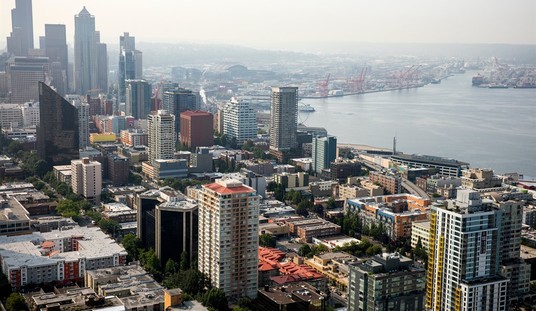Popquiz, hotshots*: You have public-employee unions that force public-sector employees to pay dues and make the state act as their bagman. The state refuses to collect dues and changes the law to make dues and union membership entirely voluntary. What do people do?
That’s easy … they quit paying the dues:
Public-employee unions in Wisconsin have experienced a dramatic drop in membership—by more than half for the second-biggest union—since a law championed by Republican Gov. Scott Walker sharply curtailed their ability to bargain over wages and working conditions.
Wisconsin membership in the American Federation of State, County and Municipal Employees—the state’s second-largest public-sector union after the National Education Association, which represents teachers—fell to 28,745 in February from 62,818 in March 2011, according to a person who has viewed Afscme’s figures. A spokesman for Afscme declined to comment.
Much of that decline came from Afscme Council 24, which represents Wisconsin state workers, whose membership plunged by two-thirds to 7,100 from 22,300 last year.
A provision of the Walker law that eliminated automatic dues collection hurt union membership. When a public-sector contract expires the state now stops collecting dues from the affected workers’ paychecks unless they say they want the dues taken out, said Peter Davis, general counsel of the Wisconsin Employment Relations Commission.
In many cases, Afscme dropped members from its rolls after it failed to get them to affirm they want dues collected, said a labor official familiar with Afscme’s figures.
That’s the reason that the PEUs hit the panic button in February 2011. They knew that the law would severely cut into their membership once the state refused to force dues payments as a condition of employment. This also undermines the credibility of union leaders who claim to speak for public-sector workers, as it shows a significant number of them don’t support the union at all, especially in the literal sense now.
Want to know what else happens when the state lets workers choose for themselves? Presidents find other things to do than campaign in the state. Byron York reports that Barack Obama will keep Tom Barrett and Wisconsin Democrats at arm’s length this week, wanting to avoid being connected with the upcoming results of the recall election:
Last year, when angry protesters filled the streets of Madison, Wis., denouncing Gov. Scott Walker’s plan to curtail some union collective bargaining powers, President Obama was eager to associate himself with the union cause. “Some of what I’ve heard coming out of Wisconsin, where they’re just making it harder for public employees to collectively bargain generally, seems like more of an assault on unions,” Obama told a Milwaukee TV reporter in February 2011.
Now, it’s just days until voters decide whether to recall Walker — an effort started, maintained and financed by the unions. If the polls are correct, Walker, who is being challenged by Milwaukee Mayor Tom Barrett, seems headed toward keeping his job. And now, the president is not only no longer talking about Wisconsin, he’s actually seeking to distance himself from next week’s likely Democratic defeat. …
The latest poll on the recall battle shows why Obama is staying away. It’s not just that he doesn’t want to appear with a loser. Perhaps just as importantly, there is no advantage for Obama to risk his own popularity by making a high-profile visit to oppose policies that are finding increasing favor with voters.
In other words, it’s pretty much a win all the way around. Too bad our own state legislature didn’t put the right-to-work amendment on the November ballot this year, or we might have frightened Obama off from his Twin Cities visit this morning.
* – Apologies to the late Dennis Hopper.








Join the conversation as a VIP Member